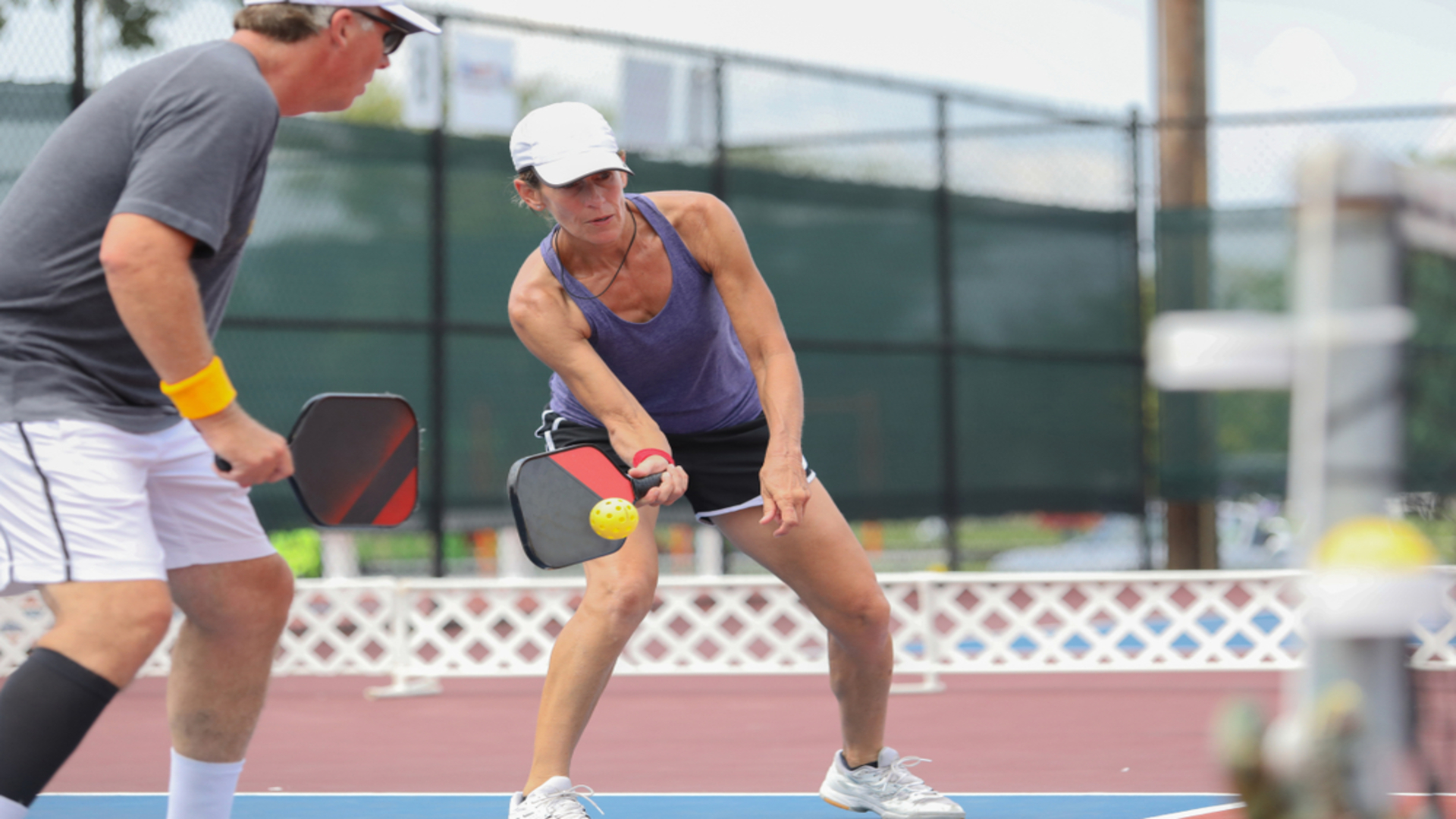
Pickleball, in 1965 on Bainbridge Island by three men seeking to create a game the entire family could play together, has become the fastest-growing recreational sport in the United States since 2019. Played on a 20-foot by 44-foot court, which is the same size as a doubles badminton court, the game is mix of tennis, badminton, and ping pong. Courts have been popping up in parks, fitness centers, retirement communities, and more as pickleball’s popularity has grown.
It’s not hard to see why the sport has caught on. The smaller court size, plus the slower motion of the ball than in tennis, makes it easier for people of all ages to participate. It is also a low-impact, non-contact way to get some enjoyable exercise in a fun, social setting. That makes it a favorite with a wide variety of people, from young families to retirees.
Like any sport, however, pickleball does have the potential for injury. If you’re not careful, that fun afternoon on the court could do lasting damage. Here’s what to know about the most common pickleball injuries, what you can do to prevent them, and how to help your recovery if you overdo it.
Unsurprisingly, the older you are, the more your risk for a pickleball injury increases. One recent study of pickleball injuries in U.S. emergency rooms showed that 90% of those treated were 50 or older, about evenly split between men and women. About half of the injuries in the study were either strains or sprains and fractures. Aside from the type of acute injury that would prompt a trip to the ER, however, pickleball can put its players at risk for injuries that develop over time.
As with many racquet sports, pickleball puts the extremities (arms and legs) most at risk. Arm injuries can be the result of repetitive wear and tear or overuse. Leg injuries, such as ankle sprains or knee strains, can happen when a player moves to get the ball. Low back strains are common, as are muscular strains and rotator cuff injuries from swinging the racquet. Pickleball can also increase the risk of developing lateral epicondylitis (often called tennis elbow), when the tendons that attach the forearm muscle to the elbow become injured and inflamed from gripping the paddle tightly for long periods of time and/or repeatedly twisting the wrist as you hit the ball.
Some simple preventative strategies can help reduce the chance of an injury. Stretch and warm up before you hit the court, and wear appropriate, supportive shoes. Clear the court of any debris that might pose a tripping hazard. Staying hydrated, especially in warmer weather, can help prevent dizziness or faintness as well.
If your latest round of pickleball has you feeling stiff and sore, or you’re resting a sprain or strain, the Ocean Lab’s recovery services can help get you back out on the court faster. These include:
These treatments can be used alone or in combination to address your specific area of concern, and to support your continued wellness and active lifestyle. Whether you’re new to pickleball or you’re honing your competitive edge, we can help keep you in shape to enjoy the game in your top form.
At the Ocean Lab, we’re here to support your well-being so that you can remain active and vital. Contact us to learn more about our member services or book an appointment for your preferred treatment here.